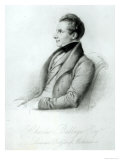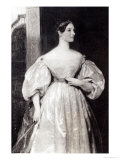|
|
|
|
|
|
|
|
|
|
|
| BOOKS ABOUT COMPUTERS & COMPUTER CAREERS |
|
|
|
|
|
|
|
|
|
|
|
|
|
|
|
|
|
|
|
|
|
|
|
|
 |
|
|
|
|
I AM A COMPUTER PROGRAMER, Poster
I can create web pages and install new computer equipment. Sometimes I even help my parents figure out why they can't get their emai!. Computers are fascinating to me and I love learning how to use them. If I believe in myself and follow my dream, someday I'll be writing computer programs. I have the power to be somebody!
Related careers: Mathematician / Webmaster / Computer Systems Analyst / Software Engineer
• more “Someday I'll be Somebody!” posters
|
|
|
|
Flatland, A Romance of Many Dimensions (illustrations by the Author, A SQUARE), written in 1884 by Edwin Abbot, is still considered an excellent source of inspiration for computer and mathematical students.
Edwin Abbot quote ~
• “I call our world Flatland, not because we call it so, but to make its nature clearer to you, my happy readers, who are privileged to live in Space.”
|
|
|
|
Marc Andreessen
b. 7-9-1971; Cedar Rapids, IA
Marc Andreessen is software engineer best known as co-author of Mosaic, the first widely-used web browser, and founder of Netscape Communications Corporation.
|
|
|
|
Charles Babbage
b. 12-26-1791/2; London, England
d. 10-18-1871
Mathematician Charles Babbage, frustrated by the tediousness of calculation and the high rate of human error, originated the idea of a programmable computer to mechanically calculate mathematical tables. Babbage was in correspondence with the Countess of Lovelace, Augusta Ada Byron about programming the calculator.
Charles Babbage quotes ~
• “The whole of arithmetic now appeared within the grasp of mechanism.”
• “If we look at the fact, we shall find that the great inventions of the age are not, with us at least, always produced in universities.”
|
|
|
|
Tim Berners-Lee
b. 6-8-1955; London, England
You can thank Tim Berners-Lee for this link <http://www.netposterworks.com/vocationaled/computer-people.html#tim-berners-lee>! In March of 1989 computer scientist Tim Berners-Lee made a proposal for an information management system, and on 25 December 1990, with the help of Robert Cailliau and a young student at CERN, he implemented the first successful communication between a Hypertext Transfer Protocol (HTTP) client and server via the Internet - the World Wide Web.
FYI - Berners-Lee's parents, Conway Berners-Lee and Mary Lee Woods, worked on the first commerically-built computer, the Ferranti Mark I.
|
|
|
|
Jeff Bezos
b. 1-12-1964; Albuquerque, NM
Jeff Bezos is the founder, president, CEO and board chairman of Amazon.com.
• attended Montessori school
|
|
|
|
|
|
|
Augusta Ada Byron, Countess of Lovelace
b. 12-10-1815; London, England
d. 11-27-1852; Marylebone
Ada Lovelace was the only legitimate daughter of Lord Byron. She received early training as a mathematician and is considered to have written the first computer program in her correspondence with Charles Babbage about his early mechanical general-purpose computer, the analytical engine.
• Ada, Countess of Lovelace
|
|
|
|
Vannevar Bush
b. 3-11-1890; Everett, MA
d. 6-28-1974; Belmont, MA (stroke/pneumonia)
Vannevar Bush was an engineer and science administrator best remembered for his work on analog computing, a primary organizer of the Manhattan Project (atomic bomb), the founding of Raytheon, and the idea of the memex which later inspired the creation of hypertext and the World Wide Web.
Vannevar Bush quotes ~
• “There will always be plenty of things to compute in the detailed affairs of millions of people doing complicated things.”
• “Consider a future device for individual use, which is a sort of mechanized private file and library. It needs a name, and to coin one at random, memex will do. A memex is a device in which an individual stores all his books, records, and communications, and which is mechanized so that it may be consulted with exceeding speed and flexibility. It is an enlarged intimate supplement to his memory.”
• “There is a new profession of trail blazers, those who find delight in the task of establishing useful trails through the enormous mass of the common record.”
• “Science, by itself, provides no panacea for individual, social, and economic ills. It can be effective in the national welfare only as a member of a team, whether the conditions be peace or war. But without scientific progress no amount of achievement in other directions can insure our health, prosperity, and security as a nation in the modern world.”
• “We puzzle as to whether the universe is bounded or extends forever; whether, indeed, it may only be one universe among many. We speculate as to whether our universe began in a vast explosion, whether it pulsates between utter compression and wide diffusion, whether it is self-renewing and thus unchanged forever. And we are humble. ... But science teaches more than this. It continually reminds us that we are still ignorant and there is much to learn. Time and space are interconnected in strange ways; there is no absolute simultaneity.”
• “Science has a simple faith, which transcends utility. Nearly all men of science, all men of learning for that matter, and men of simple ways too, have it in some form and in some degree. It is the faith that it is the privilege of man to learn to understand, and that this is his mission. If we abandon that mission under stress we shall abandon it forever, for stress will not cease. Knowledge for the sake of understanding, not merely to prevail, that is the essence of our being. None can define its limits, or set its ultimate boundaries.”
• “It is Earlier Than We Think.”
|
|
|
|
Steve Case
b. 8-21-1958; Honolulu, HI
Steve Case was the co-founder and former chief executive officer and chairman of America Online (AOL).
|
|
|
|
Bill Gates
b. 10-28-1955; Seattle, WA
Bill Gates is chairman of Microsoft, a company he founded with Paul Allen, in 1975.
|
|
|
|
Andrew Grove
b. 9-2-1936; Budapest, Hungary
Andrew Grove, businessman and scientist, was one of the earliest employees of Intel Corporation and played key leadership roles in its success.
|
|
|
|
Grace Hopper
b. 12-9-1906, NYC
d. 1-1-1992, Arlington, VA
Grace Hopper, computer scientist, was a pioneer in the development of computer languages, and played an essential role in developing and standardizing COBOL, which led to widespread use of computers in business, governmental, and science applications.
• more Grace Hopper posters
• “Women of Science” poster series
|
|
|
|
Steve Jobs
b. 2-24-1955; San Francisco, CA
d. 10-5-2011; Palo Alto (pancreatic cancer)
Steve Wozniak
b. 8-11-1950; San Jose, CA
Steve Jobs and Steve Wozniak cofounded Apple Computer, Inc. (now Apple, Inc.) in the late 1970s. Apple designs and manufactures consumer electronics and software such as Macintosh computers, the iPod and the iPhone; and Mac OS X operating system, iTunes, iLife, iWork, and Final Cut Pro.
“Here's to the crazy ones. The misfits. The rebels. The troublemakers. The round pegs in the square holes. The ones who see things differently. They're not fond of rules. And they have no respect for the status quo. You can quote them, disagree with them, glorify or vilify them. About the only thing you can't do is ignore them. Because they change things. They push the human race forward. And while some may see them as the crazy ones, we see genius. Because the people who are crazy enough to think they can change the world, are the ones who do.”
Steve Jobs quote poster: “Your time is limited, so don't waste it living someone elses life. Don't be trapped by dogma which is living with the results of other people's thinking. Don't let the noise of other's opinions drown out your own inner voice. And most important, have the courage to follow your heart and intuition. They somehow already know what you truly want to become. Everything else is secondary.” |
• Apple, fruit poster
• Adam & Eve print
|
|
|
|
John Mauchly
b. 8-30-1907; Cincinnati, OH
d. 1-8-1980; Ambler, PA
J. Presper Eckert
b. 4-9-1919; Philadelphia, PA
d. 6-3-1995; Bryn Mawr
Physicist John William Mauchly and electrical engineer J. Presper Eckert designed ENIAC, the first general purpose electronic digital computer, as well as EDVAC, BINAC and UNIVAC I, the first commercial computer made in the United States.
|
|
|
|
John von Neumann
b. 12-28-1903; Budapest, Hungary
d. 2-8-1957; Washington, DC
Mathematician and polymath John von Neumann made numerous major contributions to many fields.
John von Neumann quotes ~
• “If people do not believe that mathematics is simple, it is only because they do not realize how complicated life is.”
|
|
|
|
John Opel
b. 1-5-1925; Kansas City, MO
d. 11-3-2011; Fort Myers, FL
John R. Opel was president and CEO of IBM (International Business Machines) that chose Bill Gates MS-DOS for their operating system.
|
|
|
|
Charles Simony
b. 9-10-1948; Budapest, Hungary
Software architect Charles Simony oversaw Microsoft's Office suite applications. He is a philanthropist and a two time space tourist.
|
|
|
|
Alan Turing
b. 6-23-1912; London, England
d. 6-7-1954; England
Mathematician, logician, cryptanalyst and computer scientist Alan Turing was highly influential in the development of computer science with his description of a theoretical device, the “Turing machine”, that would play a significant role understanding the limitations of mechanical computing.
During World War II Turing “devised a number of techniques for breaking German ciphers, including the method of the bombe, an electromechanical machine that could find settings for the Enigma machine.”
Alan Turing quotes ~
• “Mathematical reasoning may be regarded rather schematically as the exercise of a combination of two facilities, which we may call intuition and ingenuity.”
• “A man provided with paper, pencil, and rubber, and subject to strict discipline, is in effect a universal machine.”
• “The idea behind digital computers may be explained by saying that these machines are intended to carry out any operations which could be done by a human computer.”
• “I believe that at the end of the century the use of words and general educated opinion will have altered so much that one will be able to speak of machines thinking without expecting to be contradicted.”
• “Science is a differential equation. Religion is a boundary condition.”
• “We can only see a short distance ahead, but we can see plenty there that needs to be done.”
• “A very large part of space-time must be investigated, if reliable results are to be obtained.”
• “I am not very impressed with theological arguments whatever they may be used to support. Such arguments have often been found unsatisfactory in the past.”
• The Annotated Turing: A Guided Tour Through Alan Turing's Historic Paper on Computability and the Turing Machine
|
|
|
previous page | top
|
|
I have searched the web for visual, text, and manipulative curriculum support materials - teaching posters, art prints, maps, charts, calendars, books and educational toys featuring famous people, places and events - to help teachers optimize their valuable time and budget.
Browsing the subject areas at NetPosterWorks.com is a learning experience where educators can plan context rich environments while comparing prices, special discounts, framing options and shipping from educational resources.
Thank you for starting your search for inspirational, motivational, and educational posters and learning materials at NetPosterWorks.com. If you need help please contact us.
|
|
|






























